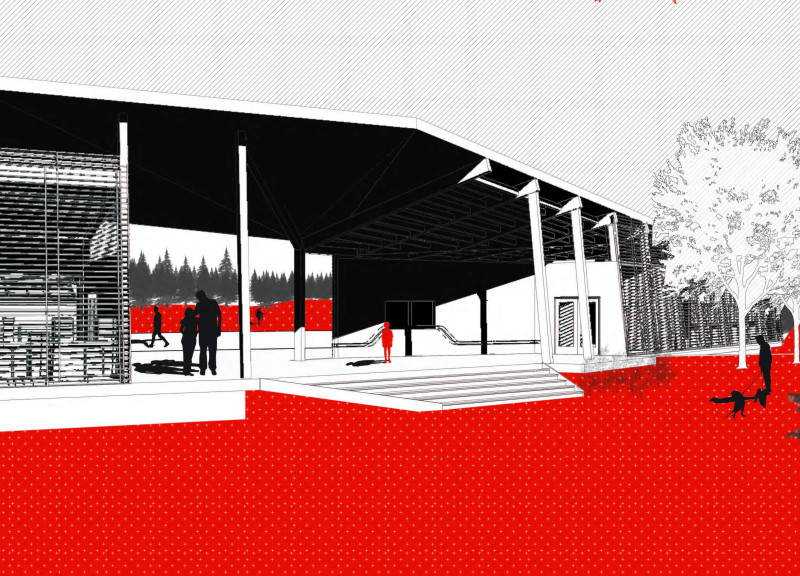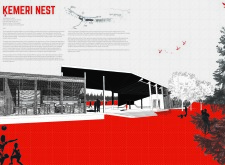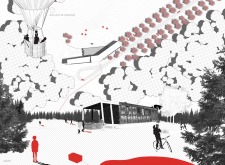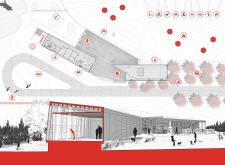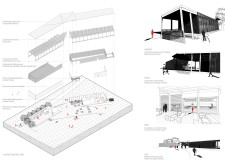5 key facts about this project
The Ķemeri Nest project is located in Ķemeri National Park, Latvia. It serves as a central hub designed for engaging visitors with the park’s diverse natural landscapes. The facility provides a range of educational and recreational activities throughout the seasons. The overall design emphasizes a connection between built structures and the environment, highlighting themes of sustainability and community engagement.
Conceptual Framework
The design focuses on creating a connection between people and nature. It aims to support interactions between visitors and the park’s wildlife while offering spaces for families to explore together. The layout encourages movement between indoor and outdoor areas, fostering a welcoming atmosphere for all who visit.
Sustainability and Materiality
Sustainability plays a key role in the project, especially concerning materials. Local wood sourced from nearby forests is used for construction, processed through a mobile sawmill. This method reduces waste and enhances ties to the local context. Integrating rainwater harvesting systems helps provide water for the center, ensuring efficient resource management.
Visitor Experience and Functionality
The facility includes an observation tower, allowing visitors to enjoy views of the Great Ķemeri Bog. This feature enhances the exploration of the landscape and encourages closer engagement with the environment. Inside, the Nest hosts various spaces for educational programs and community events. Seasonal activities, like cherry and apple festivals, invite local participation and foster a sense of belonging.
The Nest serves as a resource for education, raising awareness about ecosystems and their delicate balance. Its design promotes exploration, with paths inviting visitors to meander through both the facility and the adjacent wilderness, illustrating the relationship between human activities and the natural world.


